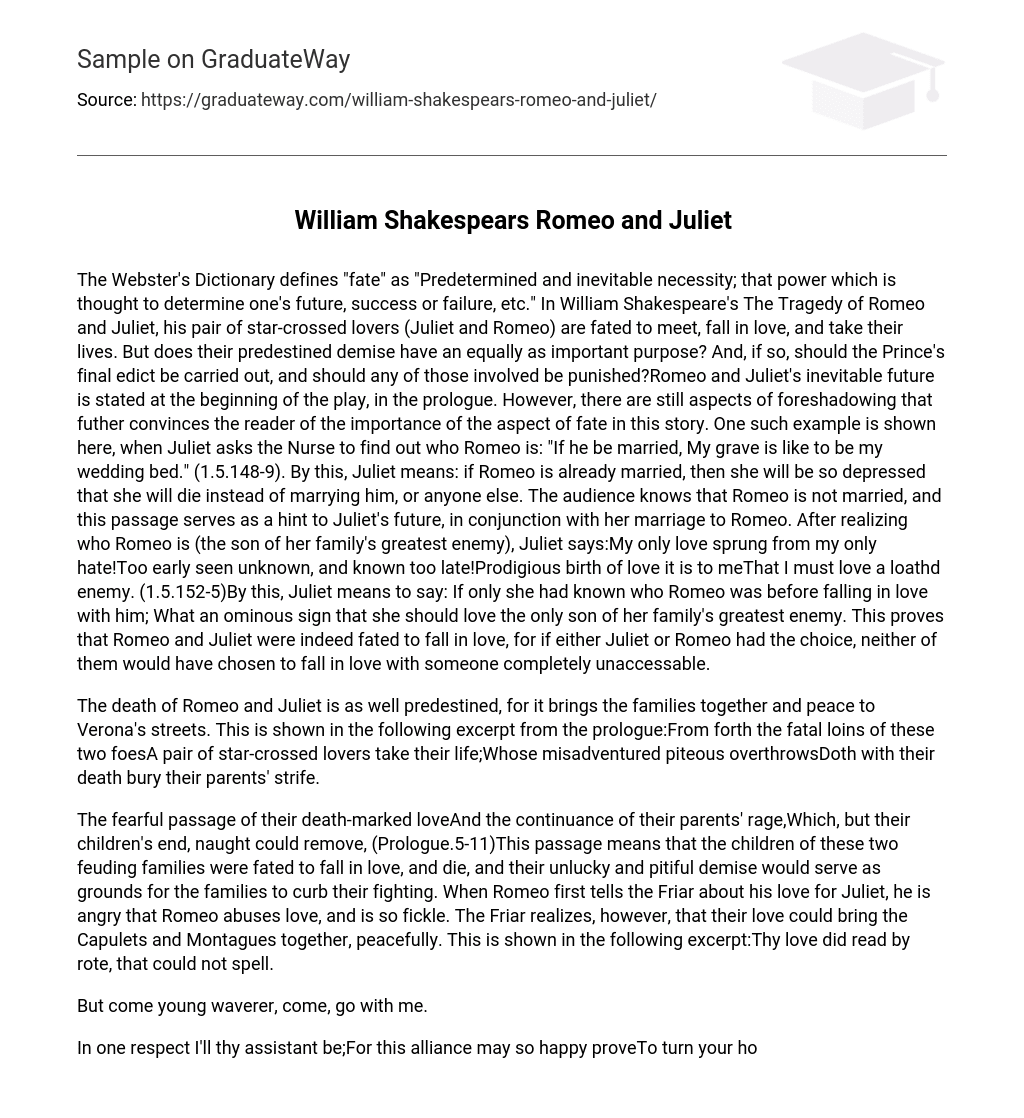The Webster’s Dictionary defines “fate” as an unstoppable and predetermined force that decides one’s future. In William Shakespeare’s play, The Tragedy of Romeo and Juliet, the story revolves around the destined meeting, love, and tragic deaths of these star-crossed lovers. This narrative prompts contemplation on whether or not the Prince’s final decree should be executed to punish those involved in their predestined demise. The idea of their unavoidable destiny is introduced in the prologue and further emphasized through foreshadowing throughout the play. For example, when Juliet expresses her fear that she would rather die than marry someone other than Romeo if he were already married, this passage reveals her future regarding her marriage with Romeo. Likewise, upon discovering that Romeo belongs to a rival family, Juliet reflects on her love for him despite this fact. Had she known his true identity before falling in love with him, it would have served as a warning sign to avoid loving someone affiliated with her family’s enemies. Thus, this exemplifies the undeniable fate governing Romeo and Juliet’s love since they wouldn’t have chosen to fall in love with someone who was strictly forbidden to them.
The death of Romeo and Juliet is predestined as it serves to reconcile the families and bring harmony to Verona’s streets. The prologue excerpt captures this notion: “From the fatal loins of these two enemies, a couple of ill-fated lovers end their lives; Through their tragic demise, they put an end to their parents’ conflict.”
The passage conveys the inevitable tragedy of the love between two individuals from feuding families. Only their deaths could potentially put an end to the ongoing hostility between their parents. When Romeo expresses his love for Juliet to the Friar, he initially criticizes Romeo for his reckless and inconsistent approach to love. However, the Friar recognizes that their love has the power to reconcile the Capulets and the Montagues in a peaceful manner. This is illustrated in the following excerpt: “Thy love did read by rote, that could not spell.”
But come, young waverer, come and go with me.
The Friar vows to assist Romeo in order for the potential union between him and Juliet to reconcile and transform the bitter animosity between their feuding households into genuine love. This statement by the Friar not only indicates his willingness to aid Romeo but also hints at the future events that will unfold.
In conclusion, the death of Romeo and Juliet is not attributed to anyone, as it is explicitly mentioned in the play that their tragic fate was predetermined and could not be prevented. This tragic outcome serves as a lesson for both the families involved, the town, and the audience. It aligns with the Prince’s final edict, “Some shall be pardoned, and some punished” (5.3.319), implying that only those who fail to learn from this lesson will face punishment. Bibliography:





